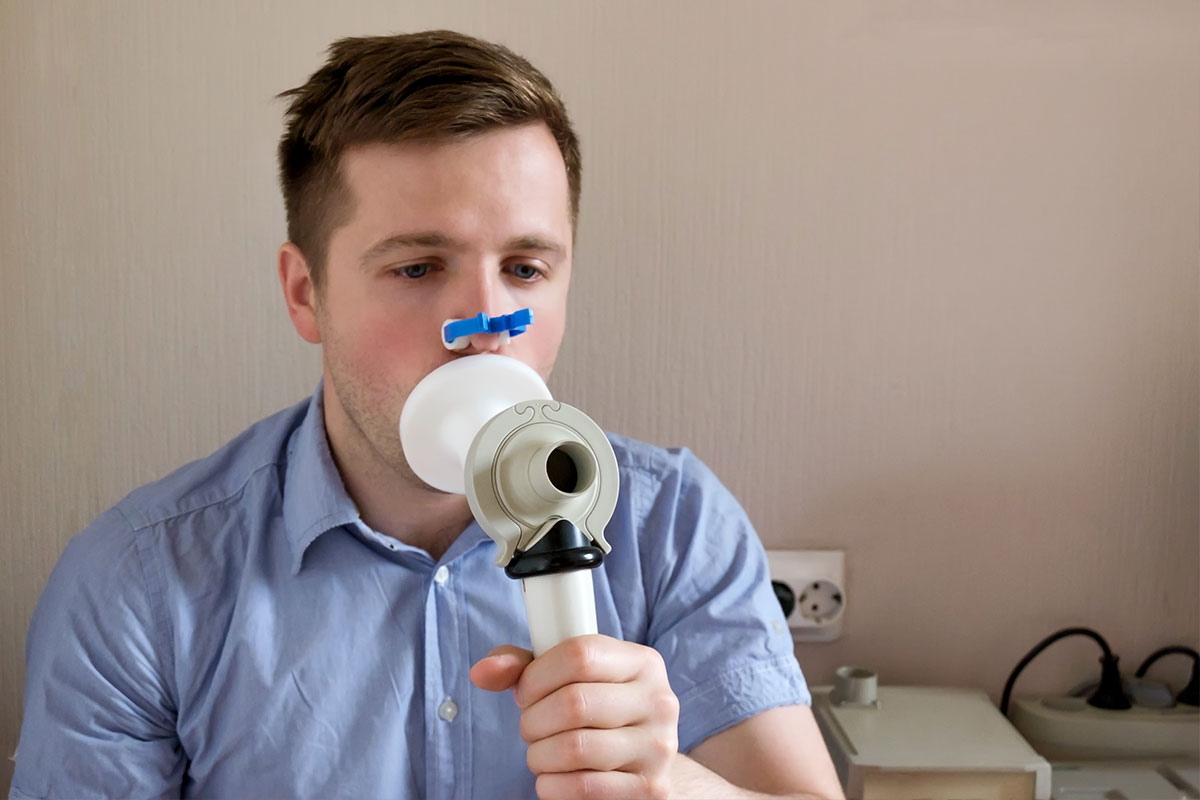Bronchitis is a common respiratory condition characterized by inflammation of the bronchial tubes, the airways that carry air to and from your lungs. This inflammation causes a persistent cough, mucus production, and shortness of breath. While often a temporary illness, bronchitis can sometimes develop into a chronic condition, making proper diagnosis and management essential. One of the most important tools for achieving this is a pulmonary function test (PFT).
Understanding Bronchitis: Acute vs. Chronic
There are two main types of bronchitis:
- Acute Bronchitis: This is a short-term infection, often caused by a virus (like the common cold or flu). Symptoms typically last for a week to 10 days, though the cough may linger for several weeks.
- Chronic Bronchitis: This is a much more serious, long-term condition. It is defined by a productive cough that lasts for at least three months of the year for two consecutive years. Chronic bronchitis is a form of Chronic Obstructive Pulmonary Disease (COPD) and is most often caused by smoking or prolonged exposure to irritants like pollution or dust.
The Role of Pulmonary Function Testing (PFT)
A Pulmonary Function Test (PFT) is a non-invasive diagnostic procedure that measures how well your lungs are working. It is a critical tool for doctors to assess the severity of bronchitis and differentiate between acute and chronic forms. The most common type of PFT is spirometry.
A spirometry test measures the amount of air you can inhale and exhale, as well as the speed at which you can exhale. The results provide valuable data points, including:
- Forced Vital Capacity (FVC): The total amount of air you can forcefully exhale after taking a deep breath.
- Forced Expiratory Volume in 1 Second (FEV1): The amount of air you can forcefully exhale in the first second.
By analyzing the ratio of FEV1 to FVC, doctors can determine if there is an obstruction in your airways, a hallmark of chronic bronchitis and other forms of COPD.
What to Expect During a PFT
A PFT is a simple and straightforward procedure. During the test, you will be asked to sit in a chair and breathe into a mouthpiece connected to a device called a spirometer. The technician will guide you through several breathing exercises, such as taking a deep breath and then exhaling as hard and fast as you can. The entire test usually takes less than 15 minutes.
Conclusion
Bronchitis can range from a minor inconvenience to a serious, life-altering condition. Pulmonary Function Testing provides the essential data needed for an accurate diagnosis, allowing doctors to distinguish between acute, self-limiting cases and chronic, progressive lung disease. By getting a PFT, you and your healthcare provider can create a targeted and effective treatment plan, helping you breathe easier and manage your symptoms for a better quality of life.
Frequently Asked Questions (FAQs)
Q1: Is a PFT necessary for every case of bronchitis?
A1: A PFT is not always necessary for acute bronchitis, which is typically diagnosed based on symptoms. However, it is essential if your doctor suspects chronic bronchitis or if your symptoms are severe and persistent.
Q2: What is the main difference between acute and chronic bronchitis?
A2: Acute bronchitis is a temporary inflammation of the airways, usually caused by a virus. Chronic bronchitis is a long-term condition, often related to smoking, and is considered a type of COPD.
Q3: Can a PFT help identify other lung conditions?
A3: Yes, PFTs are used to diagnose a wide range of respiratory conditions, including asthma, emphysema, and other forms of COPD.
Q4: Is the test painful or uncomfortable?
A4: The test is non-invasive and painless. The only discomfort you might feel is a bit of lightheadedness from the forced breathing, which quickly passes.
Q5: What do my PFT results mean?
A5: Your doctor will interpret your results. A reduced FEV1 and FEV1/FVC ratio can indicate airway obstruction, while normal results may point to a different cause for your cough.
For an accurate diagnosis and a personalized treatment plan for your respiratory health, don’t wait. Visit our website https://scchouston.co/allergy/ to schedule a consultation with our experienced pulmonary specialists. To learn more about how a PFT can benefit you, please contact us (281) 741-3204 today. We are here to help you get the answers you need.

